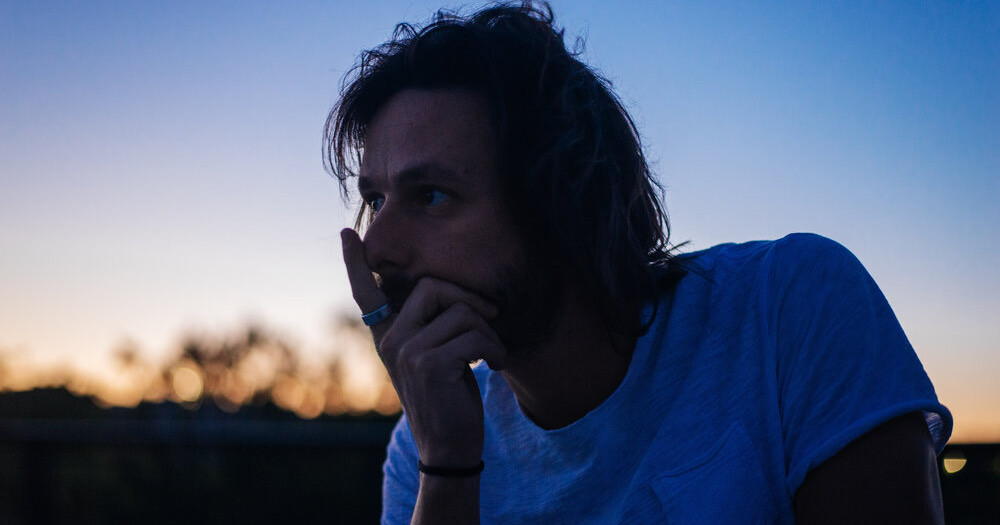
Andrea Marini: Responsibility towards the audience07.06.2021
He began his filmmaking career in Rome, where he worked on documentaries and short films. His remarkable skills in visual storytelling allow him to stay elegant and technical, remaining true to his ability to face different themes with a signature style. Whether it is a Ferrari feature documentary or a recipe from the greatest chef in the world, Andrea Marini continues to showcase his trademark aesthetics and homage to crafting. This allows him to transform every single gesture into a high-end execution story. Recently we spoke to Andrea Marini represented by Papaya Films London about his path, creative drives, and challenges that he faces as a director.
How did you get into filmmaking?
I was pretty much a kid when I first got fascinated by the art of filmmaking. The camera was so much fun to use and it appeared like the best tool to create stories. When I started, it wasn’t as easy as it is today to shoot, edit and deliver a short film, or any other kind of video: just to transfer the footage from a Hi-8 tape to a computer was quite challenging, especially for a 15-year-old kid. A lot of expensive hardware was involved! That’s why with my first short I decided to edit on camera, and for the soundtrack, I decided to put speakers in the actual scene. Looking back, maybe I should have just done it on film.
Was it always a passion for you?
Moving back and forth from photography to graphic design and filming, it was a passion and it was never boring because I had to experiment a lot with a great variety of different, yet connected media.
How much had your experience with creating ads prepared you for your directorial debut?
I can’t tell for sure, because I haven’t experienced the other path, but I can certainly say that the style I have today has been significantly affected by my work on ads. However, my directorial debut shook my world in the sense that I wasn’t used to the run and gun shooting, or guerrilla shooting, however you want to call it. I had to adapt myself to fit into that kind of situation. In other words, I was used to much bigger sets, and all of a sudden, here I am, in rural America, or even NYC, with a handheld camera and a sound guy (whenever possible). That expanded my knowledge and my style and I think Ferrari 312B is a natural evolution, a mix of my background in ads and my debut film Art of the Prank.
What was the experience for you working on your debut short film The Noise of Snow?
Dealing with the story was painful at the beginning. I had little experience in writing and structure back then. It was a lot of fun scouting for locations and doing the large auditions we did. The shooting part was great too, the crew was very solid, from pre-production to post-production. Then the first acceptance by a film festival and the great award in Miami as the best foreign film at the Miami Short Film Festival. That was quite a twist in my career because it allowed me to start the work on my first feature film.
It has since gone on to become an award-winning short. Did you ever imagine you would get this type of response and reaction to your film?
Honestly, I did not. First of all, I had no idea how the film festival circuit worked, secondly—I’m always very critical of my work and I always know that it could be better. Now it is easier to balance that out because I’m more aware of all the different steps—back then it was a shot in the dark—but I’m extremely grateful for everything that has happened.
How long did it take for you to start planning your feature debut Art of the Prank?
It was a strange process, we first started to work on a feature narrative film, then after a few months in, a producer I was working with decided to present to me this extravagant character, Joey Skaggs. I wasn’t into documentaries at the time but the minute I saw twenty-minute clips depicting Joey’s art, I thought that was the right thing to do and I started to outline the first story structure. I flew to New York, shot some research footage (that ended up in the film), and put together a teaser trailer. That took a few months, then I spent almost three years shooting and editing Art of the Prank.
Can you tell me a little bit about Ferrari 312B, how did the film come about?
Originally the project started from the desire of Paolo Barilla (former F1 driver, Le Mans Champion, entrepreneur, etc.) to restore this unique car. He thought it was important to document the whole process so he asked a production company (Tarpini Production) to shoot something. Tarpini saw some potential behind this story but he needed a director and a strong team to turn this project into an actual film, and this is where I came into play. It was a very difficult challenge, the car is beautiful, the project is very ambitious, but that doesn’t give you the elements you need to create a good (or great) film. The story had to be crafted from scratch.
What was it about this story that connected with you as a director?
There are many elements that I can relate to as a director, first I’d say the pedantic work of the mechanics, secondly the similarities between the reconstruction of a car like the 312B and the making of a film, thirdly the point of view, the challenge to tell a story of beauty and speed without any fiction, because everything you see in the film is real and happened unpredictably in front of us.
Ferrari and this story is a part of rich F1 history. Did you have any apprehensions about making a film like this?
As I mentioned before, there is a great responsibility in making a film like this one, because there are so many people out there who know a lot about this car and that era of car racing. You have to make something unique, you have to make no mistake, you have to show them something they’ve never seen before. The moment you forget about this responsibility, you’re in trouble.
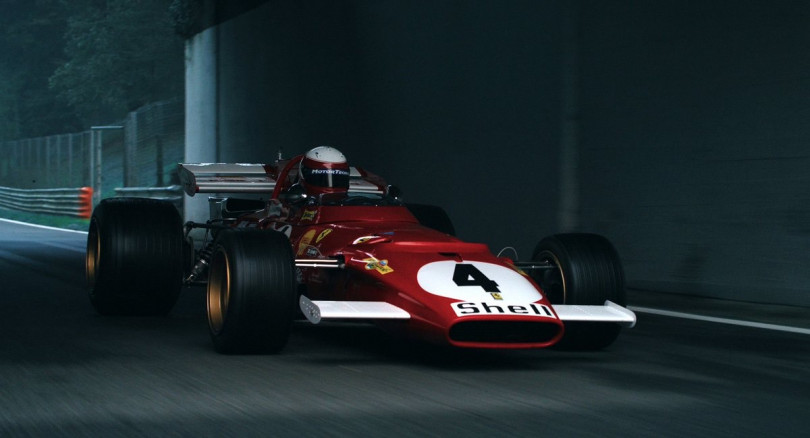
What were the biggest challenges you faced while making this film?
Dealing with time restrictions, unpredictability, being in an environment such as Monte Carlo during a race event, and making sure you are getting all the footage you need to tell your story. Especially because I’ve never been there before!
During the making of Ferrari 312B did you discover anything is forgotten or an unknown history about the people behind this masterpiece?
I’m sure there is more that I can remember right this second, but I can tell you one story that just a few people are aware of. Mauro Forghieri was known to be a tough leader, also disliked by a few for his strong personality, like every genius in my opinion. When the mechanic, Stefano Calzi, unmounted the beautiful radiator of the 312B and polished the cockpit, we discovered something unusual, it seemed like someone has engraved some letters on the car, Stefano showed that to one of the mechanics from the ’70s and they recognized immediately what that was: one of the mechanics wrote his own name on the car as a mark of disrespect towards Mauro Forghieri!!
For every project you do, big or small, try to learn something useful to enhance your own voice to make it sharper and sharper.
Looking back, is there anything you wish you had done or captured differently?
I tend to forget and look ahead, but surely there are some things I would have done differently. If I have to go through the painful process of reminiscing, I’d say that I would have changed the structure of the film a little to make the ending even stronger and create a sense of circularity. But the process of making a film can lead you to a painful decision.
As a film director, what would you say has been the biggest lesson you've learned so far?
For every project you do, big or small, try to learn something useful to enhance your own voice to make it sharper and sharper. If you do, one day you’ll get to do something that completely resonates with you and speaks to people in the way you want to.
What advice would you offer an up-and-coming director?
I’ll never get tired of repeating this: always remember the responsibility you have towards your audience.
And finally, what do you hope people will take away from your films?
Every project has a different message, but I feel like there is a common ground in my works (so far), and that would be a great sense of hope, the idea of a second chance, also give importance to values that are gone or faded in modern society, where everything moves at the speed of light and we tend to lose sight of what is really important.
see also
- Announcing the winners of the 2nd Papaya.Rocks Film Festival Papaya Rocks Film Festival
News
Announcing the winners of the 2nd Papaya.Rocks Film Festival
- A Spacefaring Garbage Truck Launched to Clean Up Earth Orbit
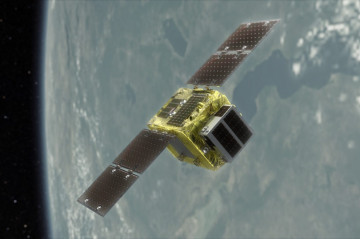
News
A Spacefaring Garbage Truck Launched to Clean Up Earth Orbit
- Paul McCartney Hypnotizes Emma Stone In His New Video
News
Paul McCartney Hypnotizes Emma Stone In His New Video
- Netflix Fighting for Recognition from Film Industry, Plans to Buy Own Cinema in Hollywood
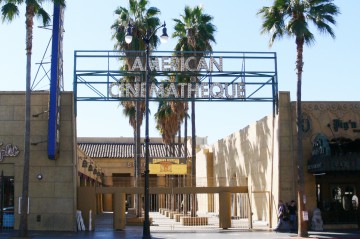
News
Netflix Fighting for Recognition from Film Industry, Plans to Buy Own Cinema in Hollywood
discover playlists
-
Muzeum Van Gogha w 4K
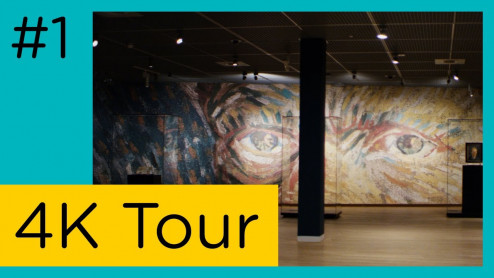 06
06Muzeum Van Gogha w 4K
-
PZU
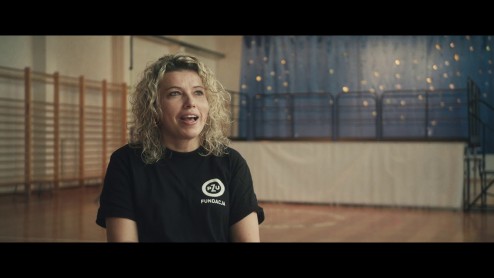 04
04PZU
-
Branded Stories PYD 2020
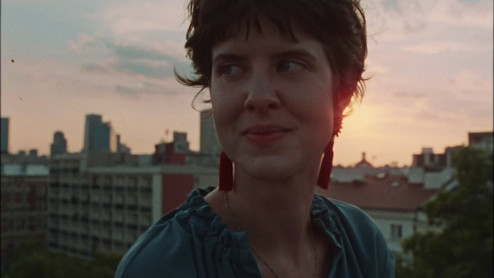 03
03Branded Stories PYD 2020
-
Papaya Young Directors 6 #pydmastertalks
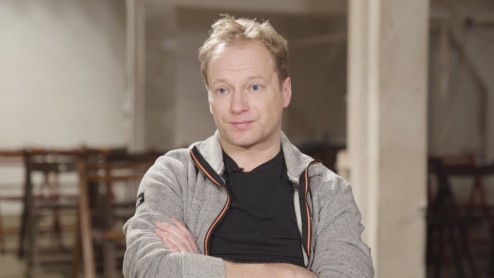 16
16Papaya Young Directors 6 #pydmastertalks
